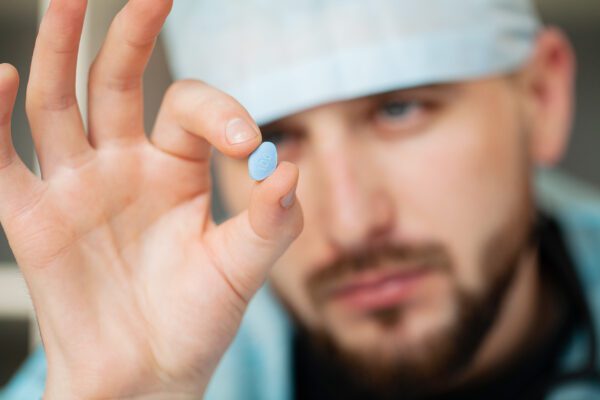Understanding Relapse Prevention
Importance of Relapse Prevention
Relapse prevention is a critical aspect of addiction recovery. It helps individuals understand the risks associated with substance use and equips them with the necessary skills to maintain long-term sobriety. According to the National Institute on Drug Abuse, recovery from substance use disorder (SUD) is a lifelong journey. Completing a treatment program is merely one step in that journey. Sustained abstinence is essential for the brain to resume normal functioning and to lay the groundwork for lasting success in recovery.
We recognize that as part of this process, it is vital for individuals to create and implement a long-term relapse prevention plan after treatment. The process is not merely about avoiding substances; it involves personal growth, developmental milestones, and understanding the dynamics of addiction.
Process of Relapse
Understanding the process of relapse is crucial for effective relapse prevention therapy. Relapse is recognized not as a singular event but as a progressive series of stages that include emotional relapse, mental relapse, and physical relapse.
-
Emotional Relapse: This stage occurs when an individual is not actively using substances but may be experiencing negative emotions or stress. They might compartmentalize their feelings and not recognize the need for help.
-
Mental Relapse: In this stage, the individual starts to think about using substances again. They may romanticize past experiences or justify reasons for using.
-
Physical Relapse: This is the final stage, where the individual begins to use substances again, effectively losing their progress.
Recognizing these stages allows for early intervention and preventative measures, making it essential to incorporate relapse prevention strategies into treatment plans.
We must be proactive in discussing these stages with individuals undergoing treatment to foster a better understanding of their emotions and triggers. By doing so, we can help form a solid foundation for ongoing recovery and resilience against relapse. Implementing effective strategies, such as therapy, support groups, and practical techniques, will further enhance the chances of successful long-term recovery.
Understanding relapse prevention is also about acknowledging that in 2020, SAMHSA’s National Helpline received 833,598 calls, marking a significant increase in individuals seeking help for substance use issues (SAMHSA). This statistic reinforces the importance of effective treatment programs like Totality Treatment, which focuses on employing relapse prevention therapy as part of their comprehensive services.
Effective Strategies
In our journey toward recovery, employing effective strategies is essential for successful relapse prevention therapy. Here, we explore therapy and counseling, mindfulness and meditation, and support groups as key components in our overall treatment plan.
Therapy and Counseling
Therapy is a cornerstone of relapse prevention, providing individuals with essential support and tools to navigate challenges. The therapeutic methods we choose can play a significant role in our recovery journey. For instance, cognitive behavioral therapy (CBT) has been shown to promote abstinence by identifying and modifying negative thought patterns that may lead to substance use. Other modalities, such as motivational interviewing and acceptance and commitment therapy, help us build resilience against potential triggers and stressors.
It’s crucial to regularly engage in therapy sessions, both individual and group, to keep our progress on track. We can also consider more specialized therapeutic methods, such as dialectical behavior therapy or psychodrama therapy, based on our unique needs.
| Therapy Type | Benefits |
|---|---|
| Cognitive Behavioral Therapy (CBT) | Modifies negative thought patterns |
| Dialectical Behavior Therapy | Enhances emotional regulation |
| Acceptance and Commitment Therapy | Encourages acceptance of feelings |
| Psychodrama Therapy | Utilizes role-play for emotional processing |
Mindfulness and Meditation
Incorporating mindfulness and meditation into our recovery plan can significantly enhance our ability to cope with stress and cravings. These techniques help us become more aware of our thoughts and feelings, allowing us to respond effectively rather than react impulsively. We can explore various mindfulness-based therapies, such as mindfulness-based therapy, to strengthen our mental resilience.
Regular practice of mindfulness can lead to better emotional regulation, reducing anxiety and promoting a sense of calm. By focusing on the present moment, we minimize the risk of overwhelming thoughts related to substance use, making it easier to maintain our commitment to sobriety.
| Mindfulness Technique | Benefits |
|---|---|
| Meditation | Enhances focus and clarity |
| Breathing Exercises | Reduces stress and anxiety |
| Body Scan | Increases awareness of physical sensations |
Support Groups
Engaging in support groups provides an invaluable sense of community and understanding. Participating regularly in groups such as Alcoholics Anonymous (AA) or Narcotics Anonymous (NA) can decrease feelings of loneliness and isolation, which are common triggers for relapse. These groups offer essential support, accountability, and education for individuals in recovery (Addiction Center).
Support groups allow us to connect with others who share similar experiences, fostering a strong support network. Sharing our struggles and victories can empower us on our path to recovery and remind us that we are not alone.
| Support Group Type | Features |
|---|---|
| Alcoholics Anonymous (AA) | Peer support and shared experiences |
| Narcotics Anonymous (NA) | Focus on recovery from drug addiction |
| SMART Recovery | Emphasizes self-empowerment and motivation |
By integrating therapy, mindfulness, and support groups into our recovery efforts, we lay a solid foundation for effective relapse prevention. Together, these strategies empower us to face challenges and maintain a substance-free lifestyle. For those interested in specialized options, exploring individual therapy or group therapy addiction can further enhance our recovery experience.
Practical Techniques
In our journey towards recovery, implementing practical techniques can greatly enhance our relapse prevention strategies. These techniques include grounding exercises, creating an emergency contact list, and practicing self-care. Each method plays a vital role in strengthening our commitment to sobriety.
Grounding Exercises
Grounding exercises are valuable tools that help us stay connected to the present moment, especially during times of stress or cravings. These exercises can involve simple activities, such as focusing on our breathing, using the five senses to identify things in our environment, or practicing mindfulness techniques.
| Grounding Technique | Description |
|---|---|
| Breathing Techniques | Concentrating on deep, controlled breaths. |
| Sensory Awareness | Identifying five items we can see, hear, smell, touch, and taste. |
| Positive Affirmations | Repeating supportive phrases to reinforce self-worth. |
By adopting grounding techniques, we can better manage cravings and avoid potential relapse situations.
Emergency Contact List
Creating an emergency contact list is an essential part of our relapse prevention plan. This list should include healthy family members or friends who are supportive and, ideally, have experience in recovery. When cravings strike, having a list of trusted contacts can provide immediate support, keeping us connected to our recovery community and reducing the risk of returning to old behaviors.
In our emergency contact list, we can include:
| Name | Relationship | Contact Information |
|---|---|---|
| Example: Jane Smith | Best Friend | (555) 123-4567 |
| Example: John Doe | Sibling | (555) 765-4321 |
| Example: Mike Brown | Recovery Sponsor | (555) 111-2222 |
Having this prepared can be a vital resource when facing challenging moments (Addiction Center).
Self-Care Practices
Incorporating self-care into our daily routine is crucial for maintaining our mental and emotional well-being. Engaging in regular self-care activities helps us manage stress and enhances our overall quality of life. These might include:
| Self-Care Activity | Benefits |
|---|---|
| Regular Exercise | Boosts mood and reduces anxiety. |
| Healthy Eating | Promotes physical and mental health. |
| Creative Expression | Provides an outlet for emotions. |
| Adequate Sleep | Supports overall health and recovery. |
Practicing self-care not only helps us recover but also equips us with strategies to cope with potential triggers and challenges. We can learn more about the importance of self-care in the context of recovery through substance abuse counseling and mental health counseling.
By integrating these practical techniques into our daily lives, we strengthen our footing in recovery and enhance our ability to prevent relapse. Let us continually engage with these practices to ensure lasting success in our journey toward sobriety.
Clinical Approaches
In our pursuit of effective relapse prevention therapy, we find that clinical approaches play a significant role in guiding individuals toward sustained recovery. Here, we will discuss three key clinical approaches: Cognitive Behavioral Therapy (CBT), medication options, and aftercare planning.
Cognitive Behavioral Therapy (CBT)
Cognitive Behavioral Therapy (CBT) is one of the most widely used treatment methods for addiction recovery. This therapeutic approach emphasizes the connection between thoughts and behaviors, allowing individuals to explore and modify negative thought patterns that contribute to substance use (American Addiction Centers). Research shows that CBT is effective in promoting relapse prevention and increasing periods of abstinence, helping individuals navigate the challenges associated with their addiction (NCBI Bookshelf).
The structure of CBT typically involves identifying irrational thoughts, understanding their impact on behavior, and developing healthier thought patterns. It can be conducted in individual or group settings, making it an adaptable option for many.
Medication Options
In addition to therapy, medication can play a crucial role in preventing relapse for those recovering from addiction. Several medications have shown effectiveness in this area:
| Medication | Efficacy |
|---|---|
| Disulfiram | Superior to naltrexone and acamprosate for preventing alcohol relapse with observed dosing. (NCBI Bookshelf) |
| Bupropion | Effective for relapse prevention in nicotine addiction, with an odds ratio (OR) of 1.49, observed up to 12 months post-cessation. |
These options provide assistance in managing cravings and withdrawal symptoms, enhancing the overall treatment effectiveness.
Aftercare Planning
The importance of aftercare cannot be overstated in the context of relapse prevention. Following formal treatment, having a solid aftercare plan can significantly improve the chances of long-term recovery. This planning may include:
- Attending 12-step meetings.
- Participating in outpatient therapy.
- Living in a sober living facility.
Aftercare strategies help manage both the psychological and physical aspects of addiction (American Addiction Centers). By establishing a robust aftercare network, individuals can effectively cope with triggers and maintain their commitment to sobriety.
In our journey towards recovery, embracing these clinical approaches allows us to better equip ourselves and our loved ones with the tools needed for successful long-term recovery.
Special Considerations
In the context of relapse prevention therapy, there are important factors to consider that can influence treatment outcomes, especially for cultural and minority groups, adolescents, and recent therapeutic advancements.
Cultural and Minority Groups
Research indicates that Black and Latino individuals may not experience the same benefits from traditional Relapse Prevention (RP) therapies as their White counterparts (Recovery Answers). This highlights a critical need for further studies to explore whether ethno-racial minorities show differential responses. Developing culturally adapted versions of RP may be essential to address these disparities, ensuring that treatment is effective for diverse populations.
| Group | Potential Benefits from RP |
|---|---|
| Black Individuals | Lower potential benefits observed |
| Latino Individuals | Lower potential benefits observed |
| White Individuals | Typical benefits observed |
Adolescent Interventions
Adolescents struggling with cannabis use disorder can benefit from a brief intervention that combines Motivational Enhancement Therapy and Cognitive Behavioral Therapy (MET/CBT), which incorporates Relapse Prevention (RP) skills. While studies show improvement in abstinence from all drugs, including alcohol, there is no evidence that this demographic benefits more than others from this specific intervention. In fact, briefer interventions like MET/CBT have proven to be more cost-effective compared to comprehensive family therapies while achieving similar outcomes.
| Intervention | Duration | Focus | Outcome |
|---|---|---|---|
| MET/CBT with RP | 5 Sessions | Cannabis use disorder | Improved abstinence |
| Comprehensive Family Therapy | Varies | Broader support | Similar improvements but at higher cost |
Recent Therapeutic Advancements
The Standard Relapse Prevention (RP) protocol consists of 12 weekly sessions, showing robust empirical support for its effectiveness in treating substance use disorder. Mindfulness-Based Relapse Prevention (MBRP) has emerged as a promising alternative, displaying comparable benefits to standard RP therapy. However, more research is necessary to ascertain whether MBRP provides additional advantages over traditional methods (Recovery Answers).
| Protocol | Duration | Effectiveness |
|---|---|---|
| Standard RP | 12 Weekly Sessions | Strong empirical support |
| Mindfulness-Based RP | 12 Weekly Sessions | Promising results |
Understanding these special considerations will enable us to tailor relapse prevention therapy to better serve individuals from diverse backgrounds and age groups, optimizing their chances of successful recovery. For more detailed information, we encourage exploring specific therapeutic approaches like cognitive behavioral therapy, mindfulness-based therapy, and various outpatient options.
Building a Personalized Plan
Creating a personalized relapse prevention plan is essential for individuals recovering from substance use disorders. This plan helps us identify triggers, manage cravings, and maintain long-term sobriety.
Identify Triggers
Triggers can play a significant role in the relapse prevention process. They can be mental, emotional, or environmental and may involve specific people, places, events, or circumstances. Identifying these triggers is crucial as it allows us to develop effective coping skills to handle them. According to New Hope Ranch, understanding what prompts cravings or anxiety can help us prepare for situations that may lead to relapse.
| Trigger Type | Examples |
|---|---|
| Emotional | Stress, sadness, loneliness |
| Environmental | Bars, parties, familiar hangout spots |
| Social | Certain friends or peer pressure |
| Circumstantial | Anniversaries of significant events, changes in routine |
Craving Management
Cravings are a normal part of the recovery process, and having strategies to cope with them is vital. A relapse prevention strategy should include techniques to navigate cravings as they arise. It is essential to remember that these cravings are temporary and will pass. Methods may include:
- Grounding Techniques: Utilizing exercises like the 5-4-3-2-1 coping technique, which can help maintain focus on the present and divert attention from cravings.
- Emergency Contact List: Creating a list of supportive individuals to reach out to when cravings arise can provide a network of encouragement and accountability (Addiction Center).
| Craving Management Techniques | Description |
|---|---|
| Grounding Techniques | Help regain focus on the present and avoid negative thoughts. |
| Emergency Contact List | A list of supportive friends or family members for immediate help. |
| Acknowledge Cravings | Recognize that cravings are temporary and will eventually pass. |
Long-Term Maintenance
Recovery is a lifelong journey, with the completion of treatment being just one step towards ongoing sobriety. According to New Hope Ranch, developing and implementing a long-term relapse prevention plan is essential after treatment. This plan should include:
- Continued participation in therapeutic programs, such as cognitive behavioral therapy or mindfulness based therapy.
- Regular involvement in support groups and peer support meetings to stay connected with others in recovery.
- Self-care practices to promote physical and mental well-being, including nutrition counseling addiction and recovery coaching outpatient.
By actively managing triggers, honing craving management techniques, and committing to long-term maintenance, we can significantly enhance our chances of successful recovery from substance use disorders.















